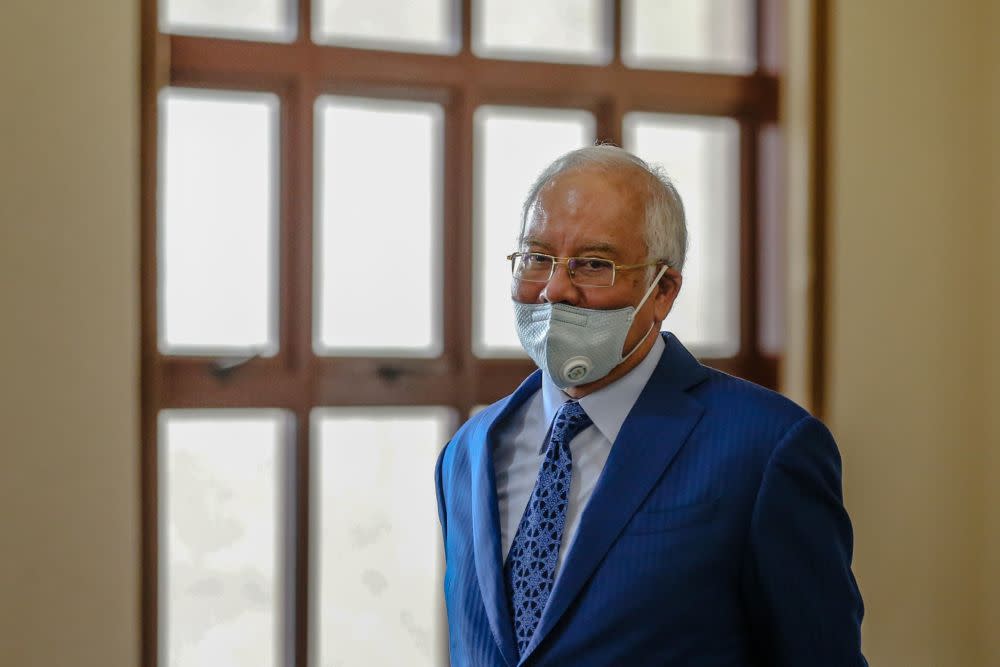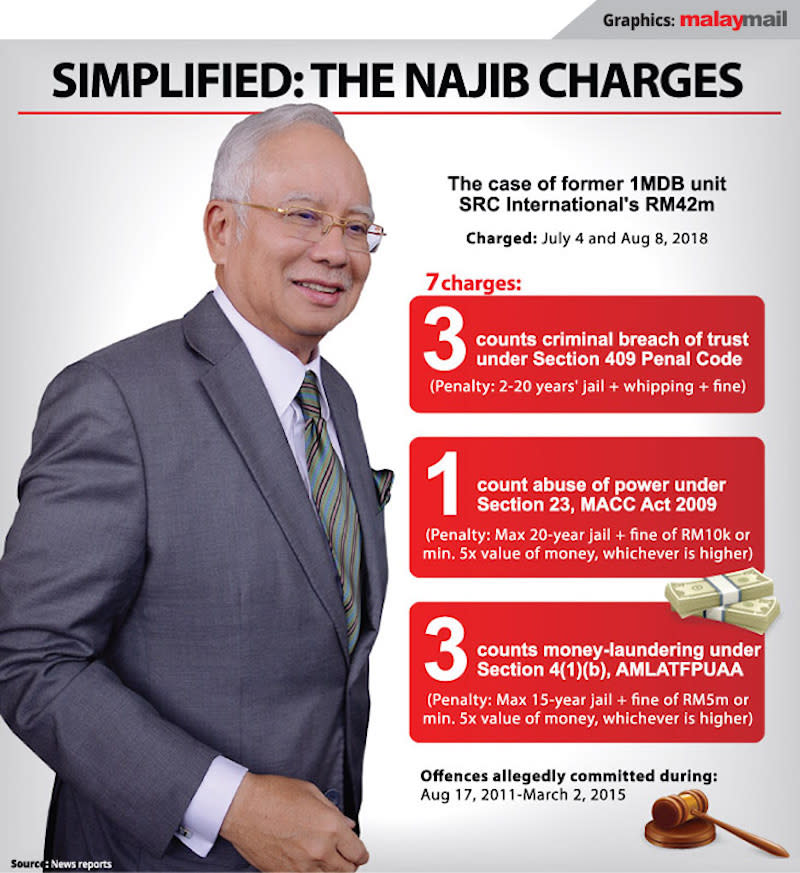SRC trial: Najib’s lawyers go on offensive in oral submissions, points out inconsistencies within prosecution’s case

KUALA LUMPUR, June 2 — In continuation of their similar approach taken yesterday, Datuk Seri Najib Razak’s lawyers today again went on the offensive as they attempted to discredit the prosecution’s case by highlighting the irregularities within the evidence adduced so far.
Among the main highlights from today’s oral submission that was conducted by Harvinderjit Singh was how he had pointed out the supposed flaws in the prosecution’s case against Najib from details surrounding the formation of SRC International Sdn Bhd right up to when the supposed financial offences were committed.
Harvinderjit pointed out that concerning the formation of SRC International, evidence has shown that Najib had no involvement in its setting up as alleged, explaining how then chief executive Nik Faisal Ariff Kamil was the one who had made the first move when he had sought for a loan from the government to start up SRC International.
The lawyer pointed out how even the decision to form SRC International back in 2011 was not at the discretion of Najib, explaining that setting up of such corporations that complements a government’s agenda would have been approved by the Economic Planning Unit and not solely by the prime minister.
Other holes were poked into the prosecution’s case by Harvinderjit, when he pointed that AmBank relationship manager, Krystle Yap, had testified as a witness and affirmed that she received instructions to approve transactions of cash into Najib’s accounts not from the account holder himself but from individuals identified as See Yoke Peng and Geh Choh Heng.
See was the then SRC International chief financial officer, while Geh has been described as fugitive financier Low Taek Jho or Jho Low’s right hand man.
As such, the lawyer pointed out that See and Geh should have been summoned to take the stand and explain their roles within the transactions that caused funds to end up in Najib’s account, adding that the onus to prove their involvement or otherwise lied with the prosecution.
“Their (prosecution) case was it was a scheme to enrich himself from one; what we are saying is there are other influences, but we are also not saying that they cannot be suggested, of course it can be suggested.
“But what I am saying is that there are other influences to be drawn, and this is because the evidence supports it,” he said during his submission this evening.
Harvinderjit will continue submitting tomorrow morning, revealing that he intends to explain the circumstances and facts surrounding Arab donations received by Najib.
Yesterday, Harvinderjit had argued that Najib allegedly spending the RM42 million said to be from SRC International did not amount to a criminal breach of trust, instead asserting that the money was misappropriated by third parties, pointing the finger at Nik Faisal Ariff Kamil Low instead.
The High Court before Judge Mohd Nazlan Mohd Ghazali had fixed three days from June 1 until June 3 to hear the oral submissions by both defence and prosecution, after the defence closed its case on March 11.
Najib is facing seven charges; including three counts of criminal breach of trust over a total RM42 million of SRC International funds while entrusted with its control as the prime minister and finance minister then, and a separate charge under an anti-corruption law of abusing the same positions for self-gratification of the same RM42 million sum.
The remaining three of the seven charges are for allegedly money-laundering the same total sum of RM42 million.

Related Articles High Court sets Aug 6 to hear judicial review application on LTTE Najib criticises ‘uncle Kadir’ for accusing him, Zahid of plotting to topple Perikatan govt SRC trial: In oral submission, defence insists Najib genuinely believed part of RM42m spent was from Arab ‘donations’



